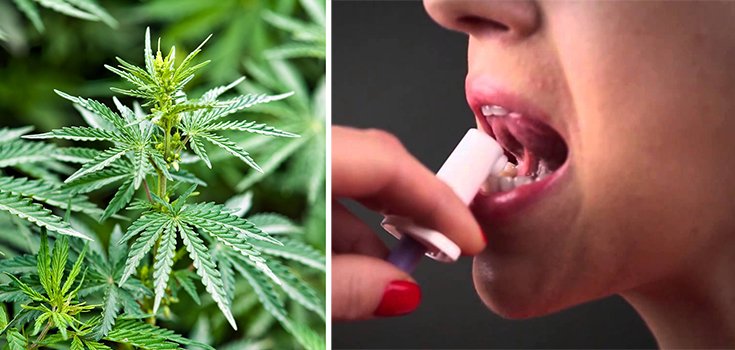Fentanyl Maker is Fighting Legal Marijuana in Arizona with Big Bucks

Insys Therapeutics, a pharmaceutical company that sells fentanyl, an opioid painkiller 100 times stronger than morphine and 50 times stronger than heroin, is fighting pot legalization in Arizona with the most powerful weapon in business and politics: money. [1]
The embattled company donated $500,000 to a campaign fighting a proposition in Arizona that would legalize recreational marijuana. For pot advocates, Insys is the poster child for the evils associated with drug companies that put profits over people.
A Little History
In late August, Insys Therapeutics was sued by the state of Illinois over alleged deceptive marketing practices involving a cancer drug and bogus speaking events targeting doctors known to prescribe opioid drugs. [2]
According to the lawsuit, filed by Illinois Attorney General Lisa Madigan, Insys marketed its drug Subsys, designed and approved to manage cancer pain, to doctors known for high-volume approval of opioid prescriptions, rather than to oncologists.
Subsys is a fentanyl-containing spray which generated $330 million in 2015.
In a statement, Madigan said:
“This drug company’s desire for increased profits led it to disregard patients’ health and push addictive opioids for non-FDA approved purposes. It’s this type of reprehensible and illegal conduct that feeds the dangerous opioid epidemic and is another low for the pharmaceutical industry.”
The suit alleges that Insys Therapeutics rewarded doctors for prescribing Subsys for off-label purposes and paid for “sham speaking events” that “functioned more as social gatherings.” Physicians in attendance could order as much high-dollar food and drink as they wished.
One doctor – an anesthesiologist – was responsible for 58% of Subsys prescriptions in Illinois, despite treating “few, if any, cancer patients.” Dr. Paul Madison was indicted in 2012 on federal charges concerning false billing claims.
Insys paid Madison upwards of $87,000 for speaking, travel, and food.
Also in August, 2 former Insys employees pleaded not guilty to charges that they participated in a scheme to offer kickbacks to doctors who agreed to prescribe Subsys.

The Two-Faced Nature of Insys Therapeutics
The drugmaker is throwing money at politicians to try to stop marijuana legalization in Arizona, but Insys is anything but anti-pot, it’s just that they want to claim it all for themselves. In fact, the company recently enrolled its first candidate for a phase II trial of a cannabidiol-based drug. The candidate is being evaluated for the treatment of cocaine addiction. [3]
Reading that, for a moment, you’re tempted to applaud their efforts to tackle the tough subject of drug addiction.
But Insys also sells one of the strongest and most addictive painkillers in the world. The number of people who are overdosing and dying from fentanyl has spiked in recent years. For example, 92 fentanyl-related unintentional overdose deaths were reported in Ohio in 2013. Preliminary data show that in 2014, there were 514 such deaths – nearly a 500% increase. [4]
Though to be fair, overdoses often occur because users unknowingly use heroin laced with fentanyl.
Meanwhile, no one has ever died from a marijuana overdose. In studies, marijuana has shown promise in treating addiction to hard drugs, including opioids. So much so, in fact, that Sen. Elizabeth Warren urged the CDC to study it further.
Money Seems to Be the Bottom Line

The bottom line is that Insys stands to lose money if recreational cannabis is legalized in Arizona. They don’t want to have to compete. Insys does not want marijuana to become more widely available – for medical use as well as recreational use – to people who can’t or don’t want to spend $300 on a doctor’s recommendation and an annual medical marijuana card from the state. [5]
J.P. Holyoak, who chairs the committee pushing the Proposition 205, which Arizonans will vote on in November, said it best:
“They want to be able to push their far more addictive, far more harmful and far more dangerous opioid drugs. Proposition 205 may potentially benefit some of the existing dispensary owners. This is still an economy and they’re going to be winners and losers.”
He went on:
“Our opponents have made a conscious decision to associate with this company. They are now funding their campaign with profits from the sale of opioids – and maybe even the improper sale of opioids.
We hope that every Arizonan understands that Arizonans for Responsible Drug Policy is now a complete misnomer. Their entire campaign is tainted by this money. Any time an ad airs against Prop. 205, the voters should know that it was paid for by highly suspect Big Pharma actors.” [6]
Sources:
[2] RT
[3] NASDAQ
[4] CDC
[5] Tucson
[6] Associated Press

August 18, 2015 Why Big Pharma hates legalized marijuana; painkillers, chemotherapy and psych drugs could be made obsolete
When certain politicians and so-called health experts bellyache over the legalization of cannabis, it’s not because they’re worried about the children. It’s because cannabis is arguably the safest and most widely effective natural medicinal herb in existence, and its widespread acceptance would immediately render obsolete the gamut of pharmaceuticals that make the establishment drug barons (and their bought-and-paid-for lackeys in Congress) filthy rich.
On Oct. 7, 2003, the US government issued Patent No. 6,630,507.
Actor Michael J. Fox and many millions of other Americans could have gotten very excited about this development back then. But it was, apparently, not the sort of thing Washington wanted advertised. Patent No. 6,630,507, you see, is for cannabinoids as antioxidants and neuroprotectants. Most people would simply refer to this as medical marijuana. Who got that patent? The US government gave this patent to itself. Just so you understand me, this is the same US government that has been fighting the use of marijuana as a drug. Yet its own scientists were claiming a decade ago that marijuana had been effective against a number of diseases.